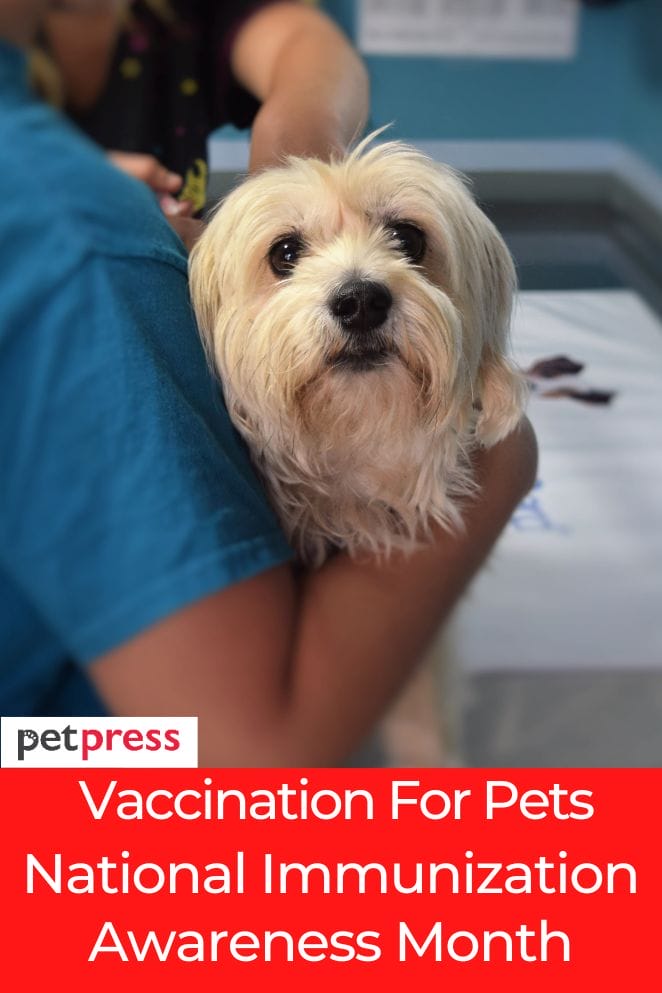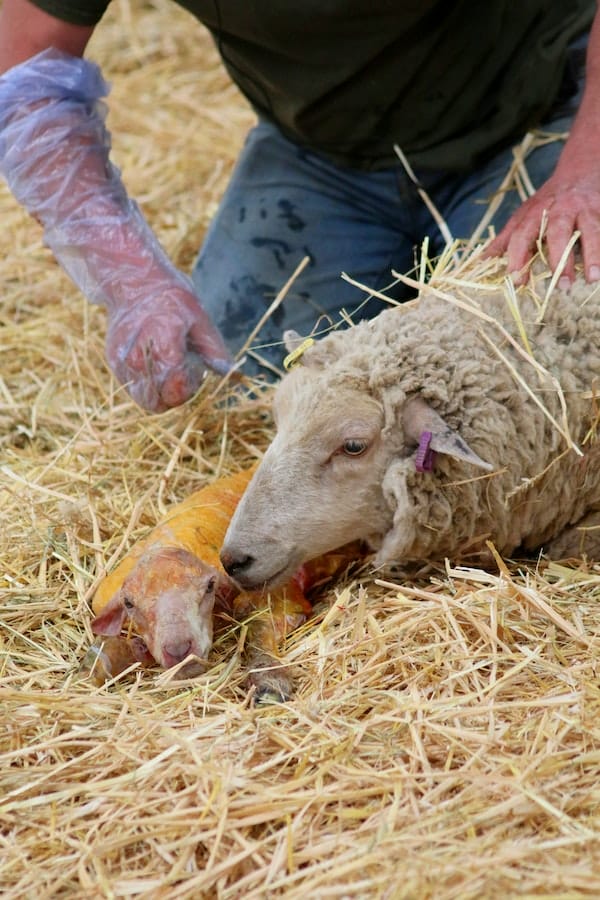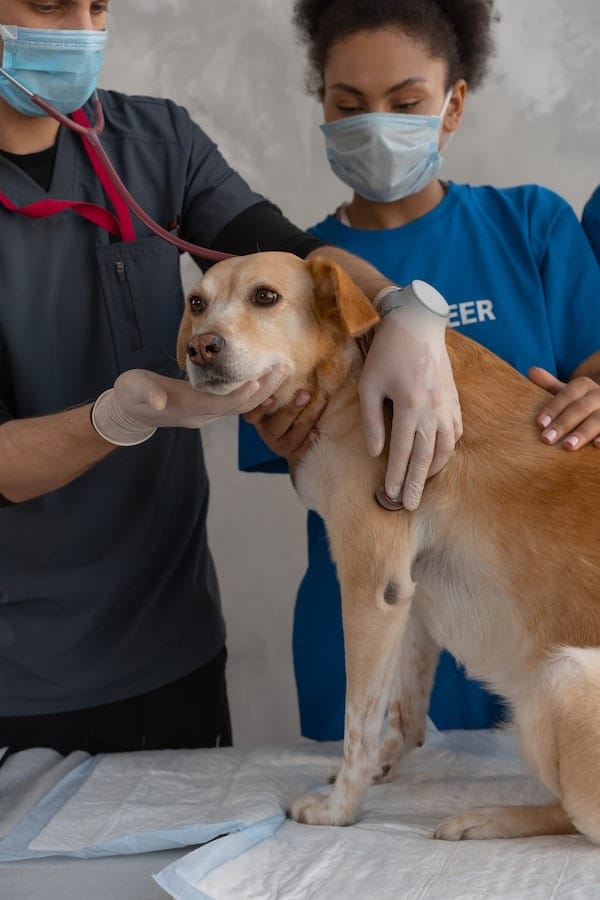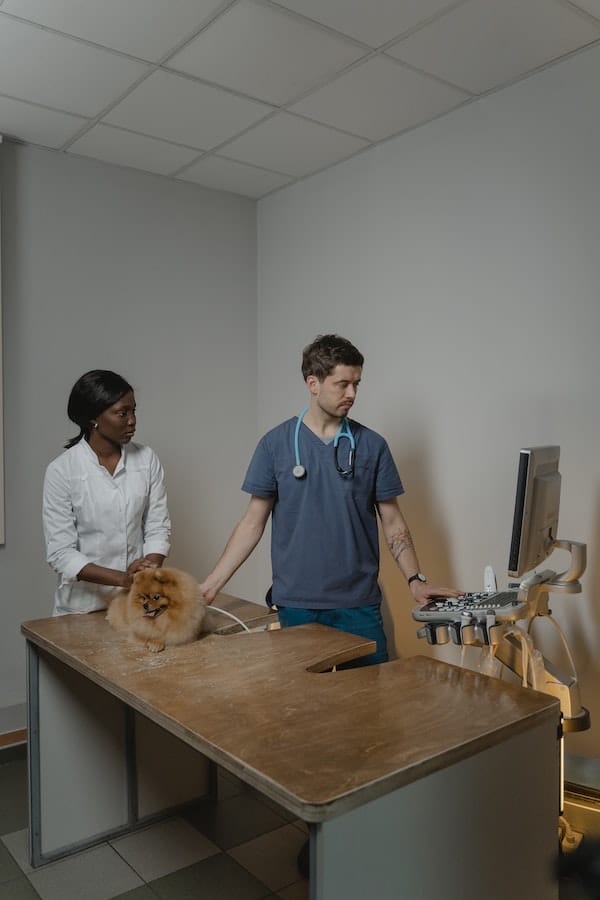
August fills in as a huge update for all pet owners to focus on their pet’s well-being through vaccination as we observe National Immunization Awareness Month.
Similarly, as immunizations have reformed human well-being, they have also played an essential part in keeping our furry companions protected and safe from preventable diseases.
This month fills in as a suggestion to pet owners wherever about the meaning of convenient vaccinations and their effect on the well-being of our four-legged companions.
As we dig into the universe of pet vaccinations, explore the various sorts of vaccines available and the advantages they give.
The importance of vaccination for pets

Vaccines are one of the most effective tools in preventing disease and maintaining the health of our pets. These include:
Disease prevention
Vaccines are unimaginably effective at preventing the spread of disease.
Vaccination is a highly effective and successful medical approach and has been responsible for almost killing specific diseases, like polio and measles.
Vaccines make insusceptibility to a specific virus or bacteria by introducing a weakened type of it into the systems.
Longevity and well-being
Vaccines are critical to giving life span and well-being to pets.
Vaccines help to safeguard against infectious diseases, like distemper and parvovirus.
They also help in the anticipation of zoonotic diseases, which are diseases that can be spread from animals to humans.
Moreover, normal vaccinations can reduce the risk of specific cancers in your pet and enhance their overall quality of life.
Cost savings
Vaccinating pets can actually save money in the long term.
Vaccines protect against illnesses that could be more expensive to treat whenever contracted like distemper and parvovirus, which frequently require intensive treatment.
Furthermore, most pet insurance companies offer discounts when a pet is up to date on their vaccines.
Vaccinating pets can also help with reducing the expenses of spaying and neutering, as a few veterinary centers require that pets be vaccinated prior to these procedures.
Legal requirements
In some regions, there are legitimate requirements for pet vaccinations.
Vaccinating your pet guarantees that it is compliant with local regulations and laws.
Moreover, some boarding facilities or pup daycares require verification of vaccination before allowing pets onto their property.
Finally, certain states have rabies vaccination regulations set up, which require all cats and dogs to be up to date on their rabies vaccines.
Different types of vaccines

There are several types of vaccines, each designed to teach your immune system how to fight off certain kinds of germs—and the serious diseases they cause.
Core vaccines
These vaccines are considered essential for all pets due to the high risk and severity of the diseases they protect against.
Core vaccines for dogs often include vaccines against canine distemper, canine parvovirus, canine adenovirus, and rabies.
For cats, core vaccines typically include feline distemper (panleukopenia), feline calicivirus, feline herpesvirus, and rabies.
Non-core vaccines
Non-core vaccines are recommended based on a pet’s individual risk factors, such as lifestyle, geographic location, and exposure to certain diseases.
Examples of non-core vaccines for dogs may include vaccines against Bordetella bronchiseptica (kennel cough), Leptospira bacteria, and Lyme disease.
Non-core vaccines for cats may include vaccines against feline leukemia virus (FeLV), feline immunodeficiency virus (FIV), and Chlamydophila felis.
Combination vaccines
Combination vaccines are designed to protect against multiple diseases with a single injection.
They offer convenience and ensure pets receive the necessary protection efficiently.
Common combination vaccines for dogs include the DA2PP vaccine (distemper, adenovirus, parvovirus, and parainfluenza) and the DHLPP vaccine (distemper, hepatitis, leptospirosis, parainfluenza, and parvovirus).
For cats, combination vaccines such as FVRCP (feline viral rhinotracheitis, calicivirus, and panleukopenia) are commonly used.
Lifestyle-specific vaccines
These vaccines are recommended for pets with specific lifestyles or higher exposure risks.
For example, dogs that frequently visit boarding facilities, and dog parks, or engage in activities such as agility or hunting may benefit from the Bordetella bronchiseptica vaccine.
Similarly, cats that have outdoor access or live in multi-cat households may require additional protection against diseases like feline leukemia.
Puppy and kitten vaccines
Young animals have developing immune systems and are particularly vulnerable to diseases.
Puppy and kitten vaccines are tailored to provide protection during this critical stage of life.
These vaccines are typically administered in a series of doses to ensure adequate immunity is established.
Always talk to a veterinarian to decide the most suitable vaccine schedule and option for your pet.
They will consider factors like age, health, lifestyle, and local disease prevalence to make a customized vaccination plan that meets your pet’s specific needs.
Common concerns about vaccination

Concerns about pet vaccinations are common among both pet owners and veterinarians. Vaccines can cause mild reactions in some pets, such as:
- Fever
- Lethargy
- Localized reaction at the injection site.
However, these reactions are usually minor and self-limiting and typically resolve without medical intervention.
It is also important to note that serious adverse events associated with vaccines are extremely rare.
To ensure the safety of pet vaccinations, responsible veterinarians only use vaccines that have been approved by the U.S. Department of Agriculture (USDA) and the Australian Pesticides and Veterinary Medicines Authority (APVMA).
Additionally, vaccine manufacturers must provide proof that their products meet strict standards for quality and safety before they can be sold or distributed.
Conclusion
As National Immunization Awareness Month comes, we ponder the significance of immunization for our dearest pets.
Consistently, we have explored the various kinds of vaccines available and their huge role in protecting the well-being and health of our furry friends.
By focusing on their vaccination needs, we exhibit our obligation to give them a life free from preventable diseases.
Keep in mind, immunizations are a critical part of dependable pet ownership, and they add to the overall health of our communities too.
Allow us to keep on spreading awareness, educate individual pet owners, and work together to guarantee that our pets get the necessary vaccinations they need all through their lives.
Thusly, we make a future where our pets can thrive, enjoying long, happy, and healthy lives by our sides.


GIPHY App Key not set. Please check settings